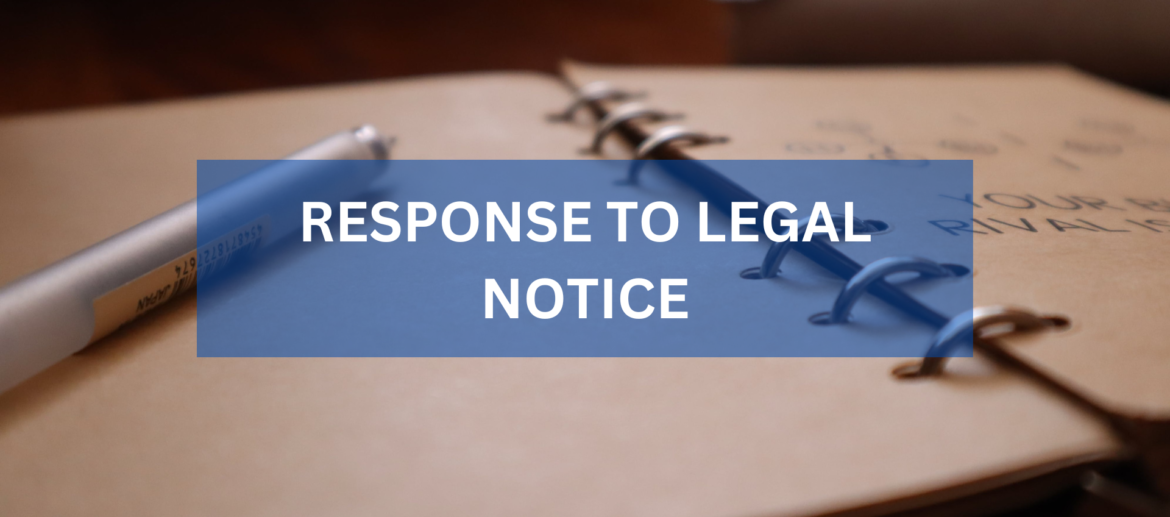
RESPONSE TO LEGAL NOTICE
Receiving a legal notice does not necessarily mean that a lawsuit has been filed against you, but it signals that the sender is serious about addressing the issue and may pursue legal action if the matter is not resolved satisfactorily. It is important to take legal notices seriously and respond appropriately to protect your rights and interests.
Why Choose Us
When responding to a legal notice, it’s crucial to do so promptly, professionally, and with careful consideration. Legal notices are usually drafted by attorneys or legal professionals to ensure compliance with legal requirements and to maximize their effectiveness. However, individuals can also draft and send legal notices themselves, especially in simpler matters.
Research & Development

Responding to a legal notice requires careful consideration and attention to detail. Here’s a step-by-step guide on how to respond effectively:
- Read Carefully: Read the legal notice thoroughly to understand the allegations, claims, or demands being made against you. Take note of any deadlines or instructions provided in the notice.
- Understand Your Position: Assess your legal rights and obligations in relation to the claims made in the notice. Consider seeking legal advice if you’re unsure about your rights or the legal implications of the notice.
- Gather Information: Collect all relevant documents, contracts, agreements, correspondence, and evidence related to the matter mentioned in the notice. Organize these materials to support your response.
- Draft Your Response: Write a formal response to the legal notice. Your response should be clear, concise, and professional. Address each point raised in the notice individually and provide factual explanations or defenses where applicable.
- Maintain Professional Tone: Keep your tone polite, professional, and respectful throughout the response. Avoid making any inflammatory or accusatory statements that could escalate the situation.
- Provide Relevant Information: Include all relevant information, facts, and evidence that support your position or refute the claims made in the legal notice. Reference specific documents or legal principles to strengthen your arguments.
- Propose Resolution: If appropriate, propose a resolution or settlement to the matter mentioned in the legal notice. Offer to engage in negotiations or alternative dispute resolution methods to resolve the issue amicably.
- Review and Edit: Carefully review your response for accuracy, clarity, and completeness. Make any necessary edits or revisions before finalizing the document.
- Send Your Response: Send your response to the sender of the legal notice within the specified timeframe. Use certified mail or email to ensure proof of delivery and retain copies of all correspondence for your records.
- Follow-Up: After sending your response, follow up with the recipient to confirm receipt and address any further questions or concerns they may have. Stay proactive in the communication process to seek resolution.
- Consult Legal Counsel: If the legal matter is complex or if you’re uncertain about how to respond, consider seeking guidance from a qualified legal professional. They can provide personalized advice and representation to protect your interests.
By following these steps, you can effectively respond to a legal notice and address the issues raised in a manner that protects your rights and interests.
